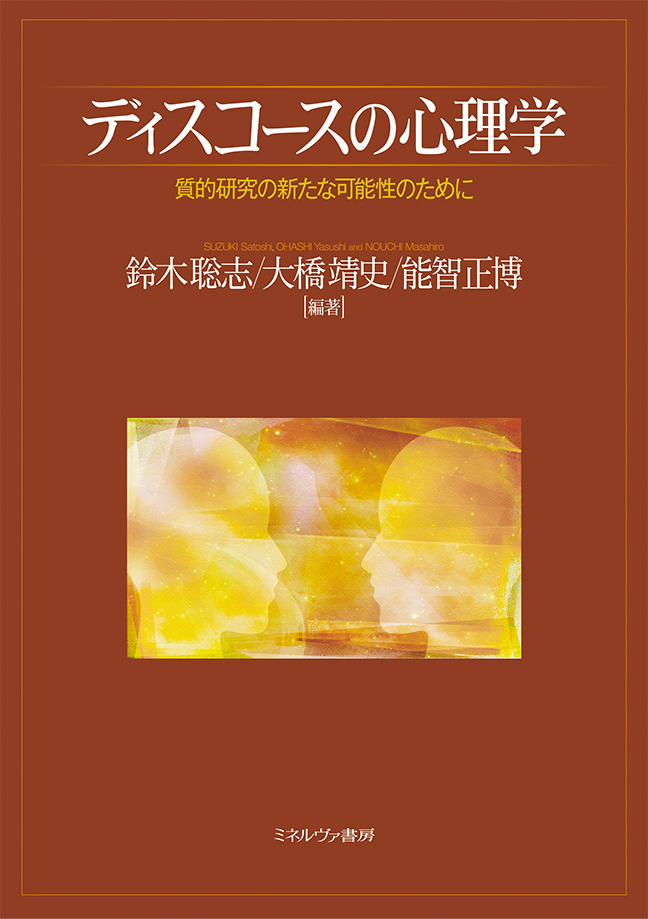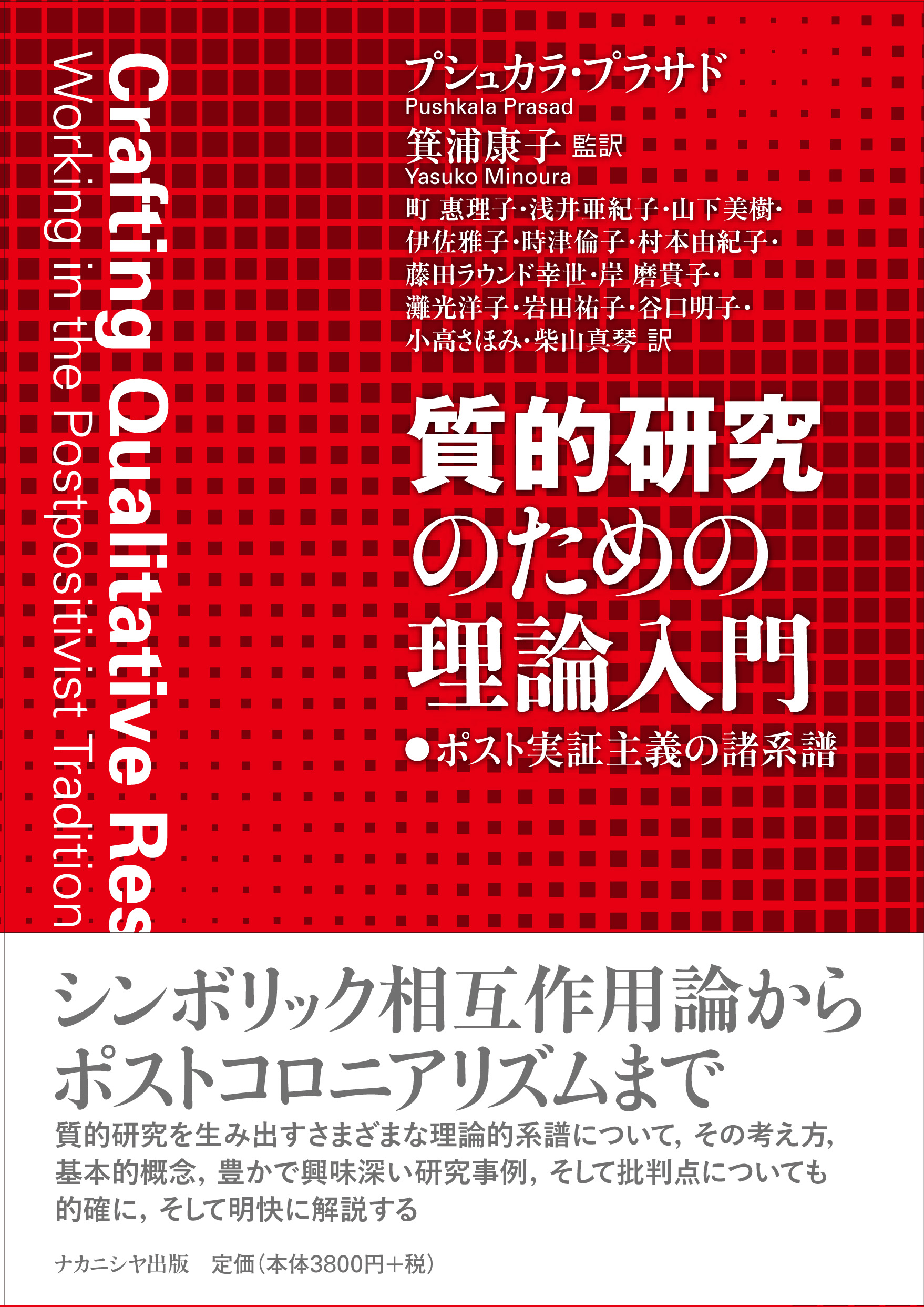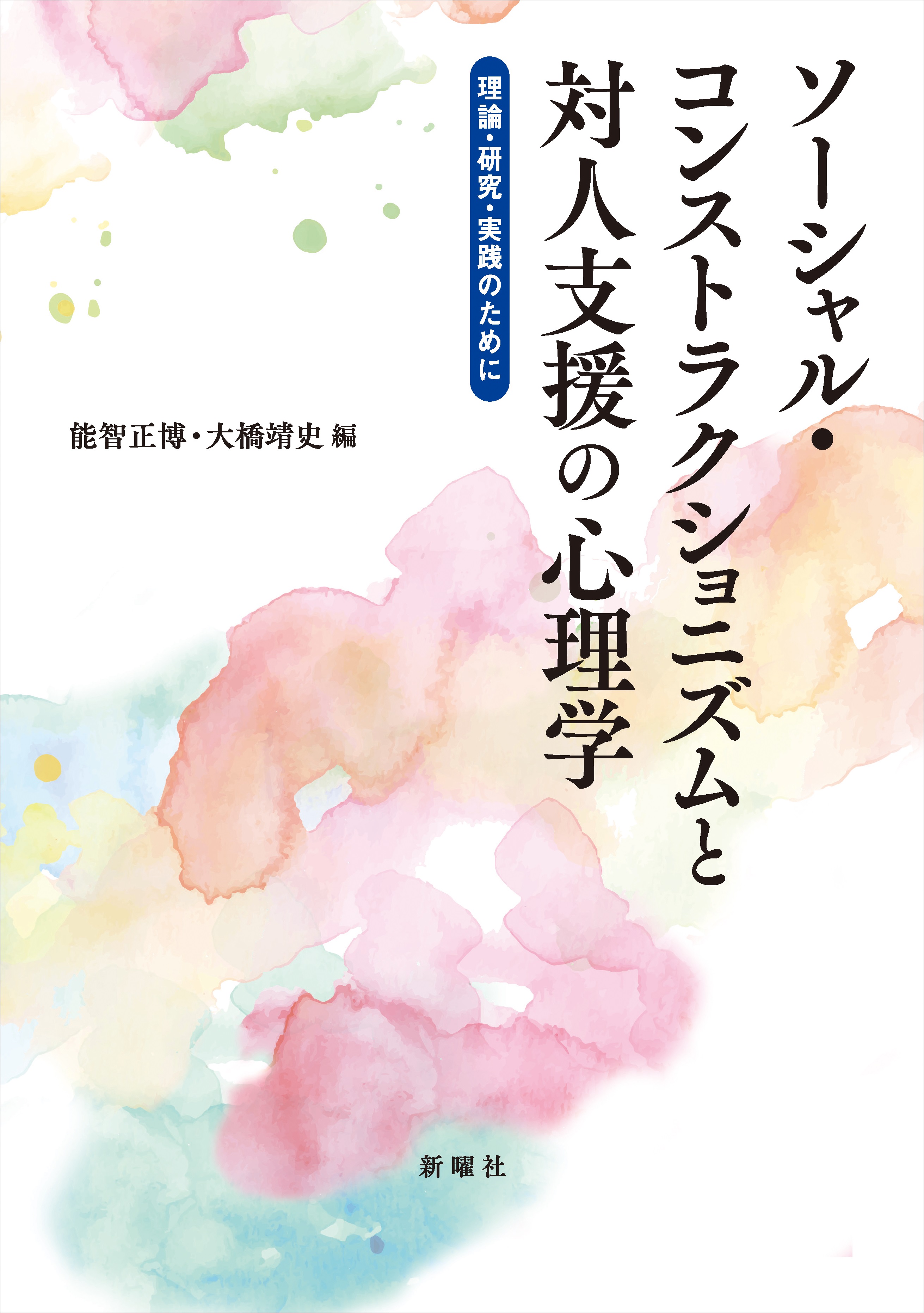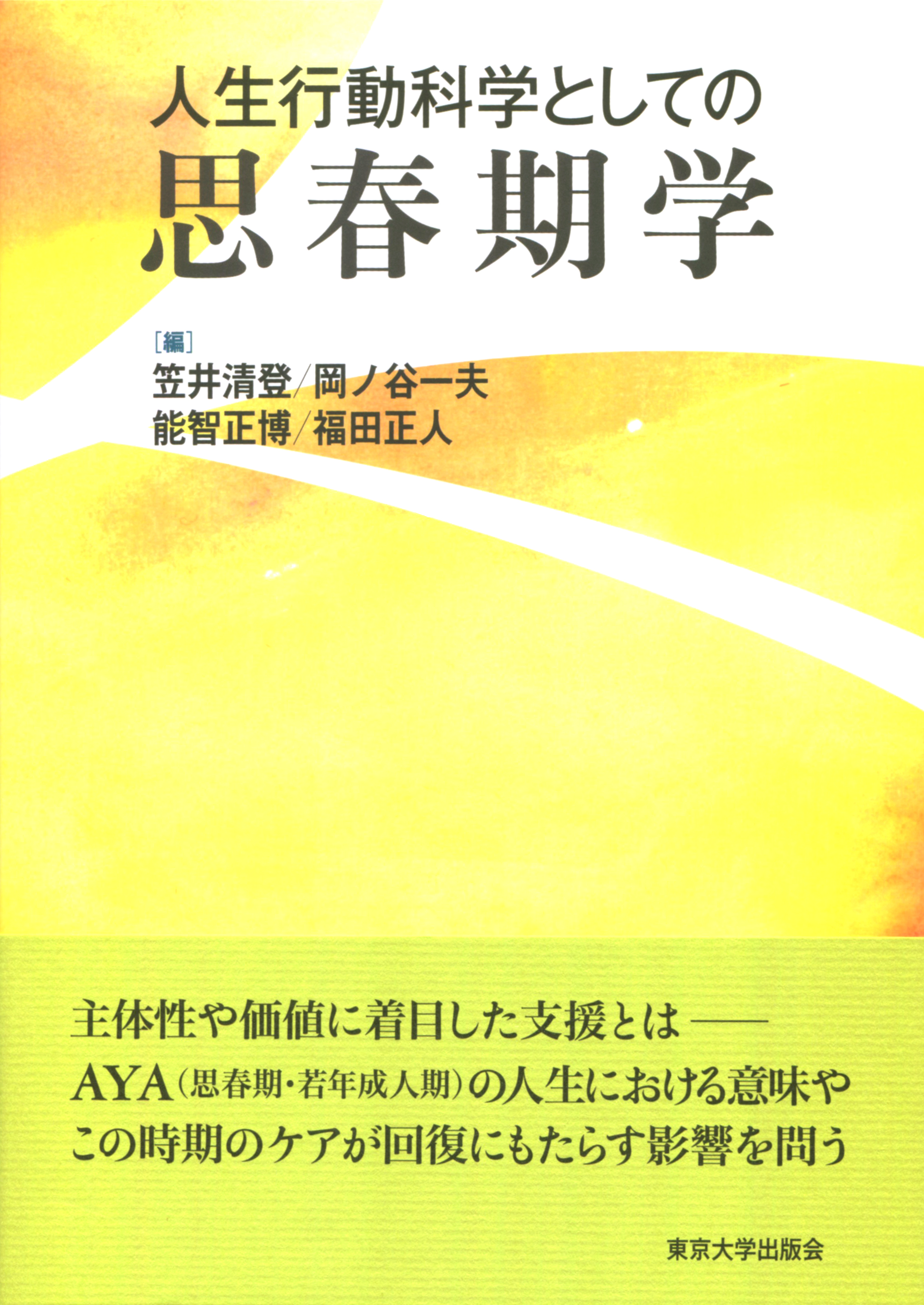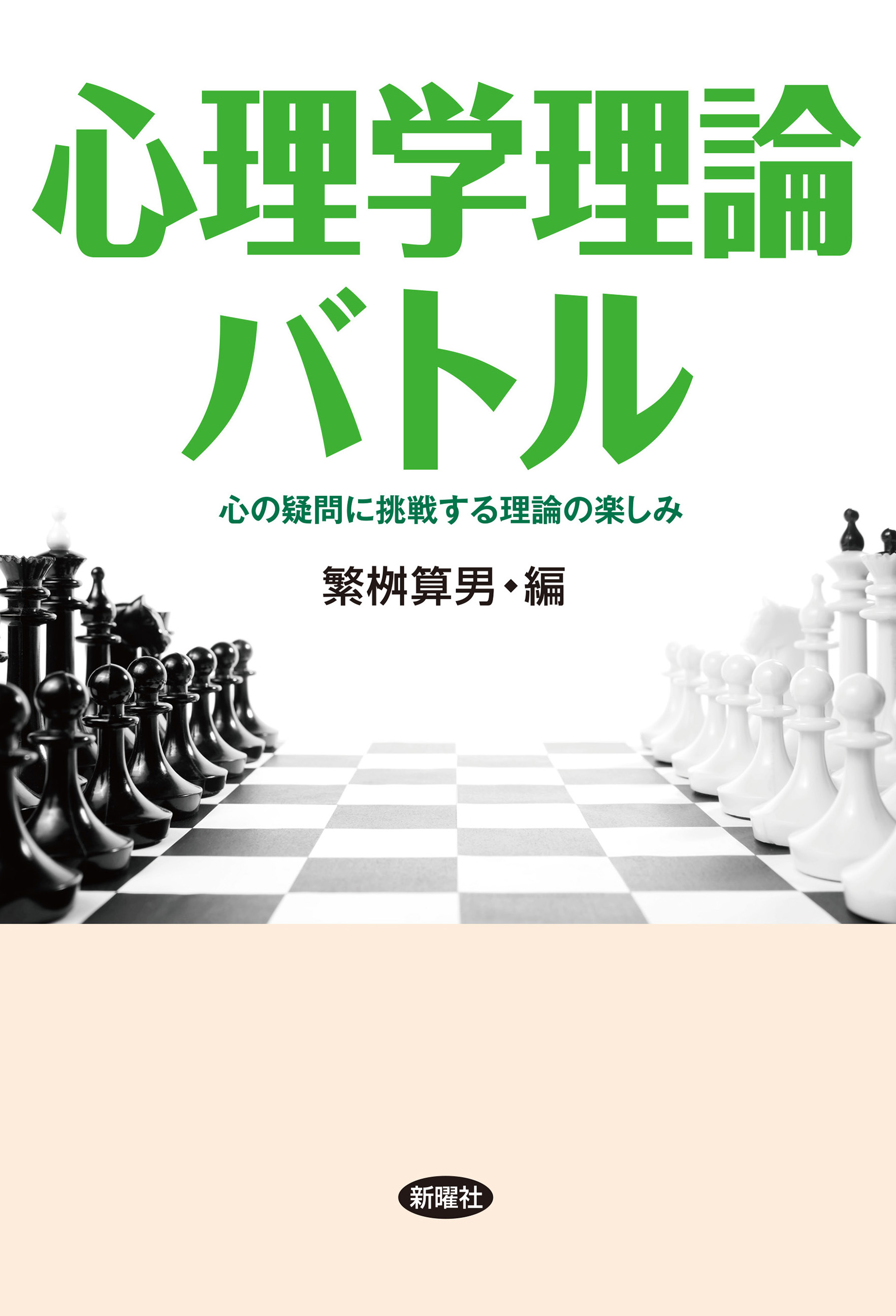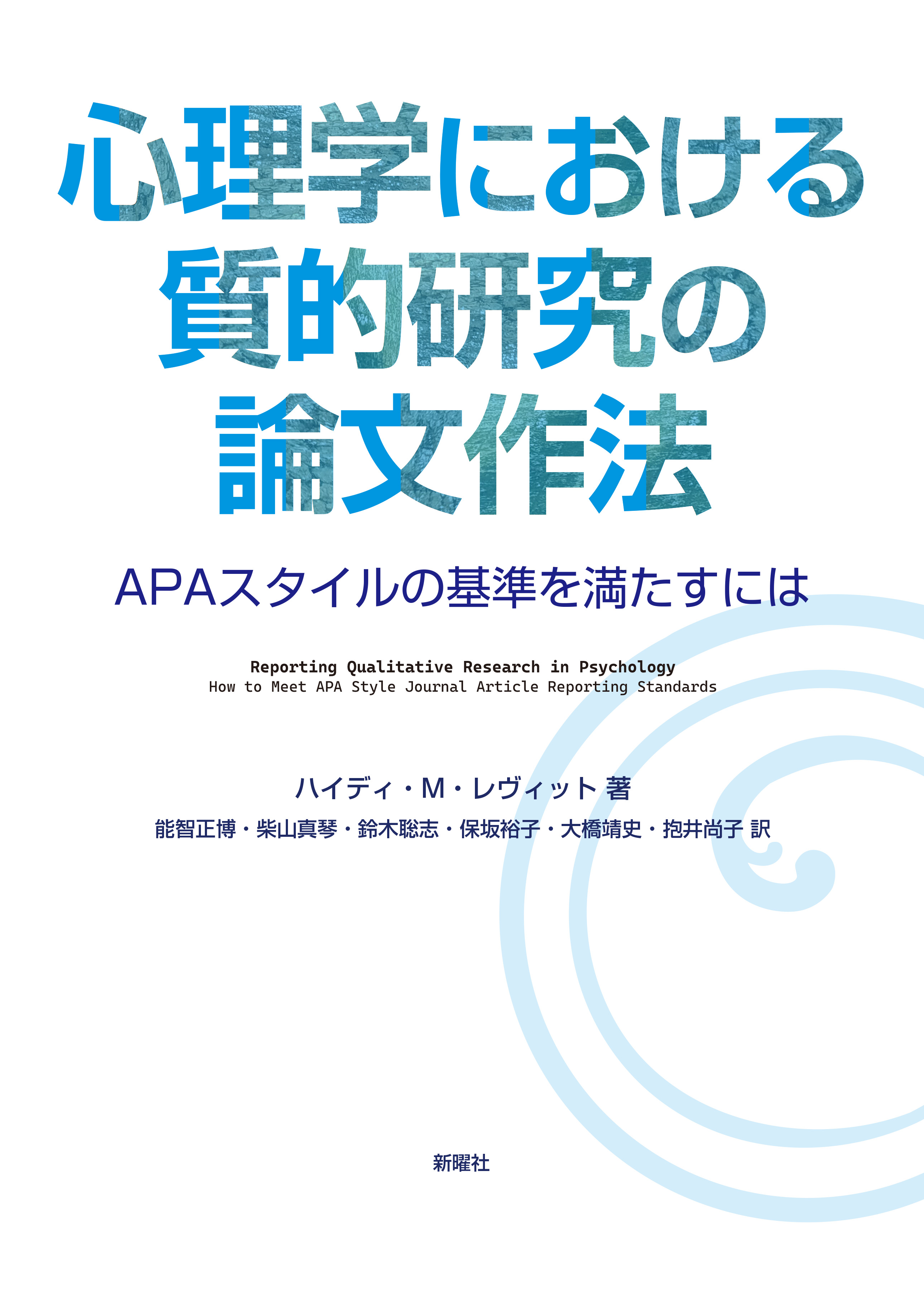
Title
Shinrigaku ni okeru sitsutekikenkyu no ronbunsahou (Reporting Qualitative Research in Psychology - How to Meet APA Style Journal Article Reporting Standards)
Size
192 pages, B5 format
Language
Japanese
Released
November 10, 2023
ISBN
9784788518285
Published by
Shinyosha
Book Info
See Book Availability at Library
Japanese Page
Over the past 30 years, qualitative research has gained recognition as an established method in psychology. Academic societies have been formed, journals have been launched, and numerous textbooks and edited volumes have been published. However, within the academic history of qualitative research many new procedures have been developed, but no single standard to evaluate the quality of such research has been recognized. In view of this, the American Psychological Association (APA) introduced the Journal Article Reporting Standard for Qualitative Research (JARS-Qual) and included it in the APA Publication Manual, 7th Edition (2020), a guide on writing academic articles in psychology. This book offers a Japanese translation of commentary by Heidi M. Levitt, chair of the task force that developed these standards.
JARS-Qual provides a framework for conducting qualitative research and writing papers that effectively communicate results to readers, especially peer reviewers of academic journals. In addition to guiding authors on the criteria for high-quality qualitative research, it also educates reviewers who may be unfamiliar with these methods on how to evaluate such work. However, because the standards are relatively brief and written in concise language, readers may find it difficult to grasp the full picture or understand their underlying rationale. This book provides a rich explanation of JARS-Qual by the author, an established leader in qualitative research in psychology, drawing on her own experiences and examples from actual qualitative research papers.
The book opens by exploring the background and scope of qualitative research, highlighting the range of approaches covered by JARS-Qual, including phenomenology, grounded theory, narratives, critical theory, and discourse. Next, it introduces “methodological integrity” as a key criterion for evaluating research quality, focusing on whether the study demonstrates “fidelity” to its topic and whether the findings have been shown to be “utilized” in some sense. The APA also provides writing standards for mixed methods and qualitative meta-analyses. The following sections cover these two standards. The final chapter offers practical considerations for submitting articles to journals.
This book will be useful to researchers conducting qualitative studies and intending to publish their work. It will also be beneficial for undergraduate students seeking to understand the backgrounds and scope of qualitative research as they develop their own research. Qualitative research often goes back and forth as researchers refine their understanding of the study. In this regard, this book will be useful as a guide for anyone conducting qualitative research in their research practice, not only in psychology but also across the humanities and social sciences.
(Written by NOUCHI Masahiro, Professor, Graduate School of Education / 2024)



 Find a book
Find a book


